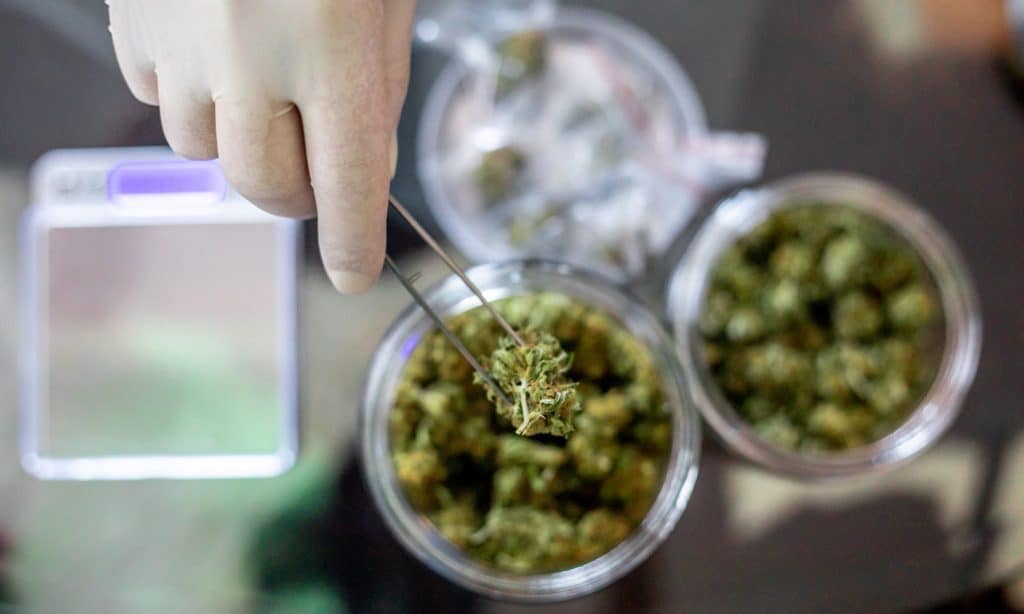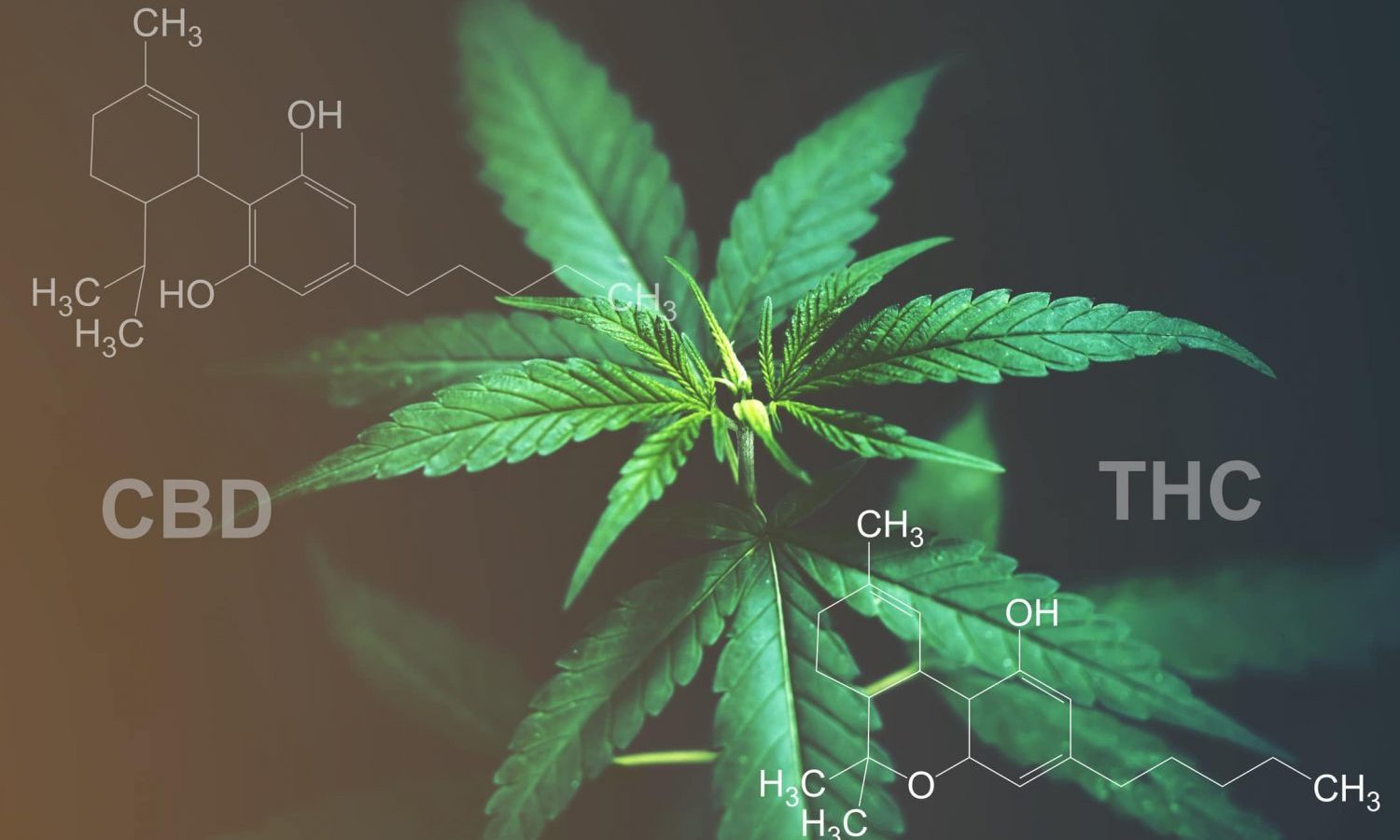Cannabis farmers tend to aim for high THC content cultivars of weed when they’re creating a new strain, without giving much thought to the effect these compounds have on the user’s body.
The potency of cannabis is determined by the content level of CBD and THC compounds present in the plant. So, it is normal to be curious about the exact amount of THC and CBD present in a cannabis product before smoking.
In the last decade, hundreds of new strains of cannabis have been created giving smokers a wide range of options to choose from. No two strains of weed can offer exactly the same characteristics. The taste and aftereffects of each cultivar will be distinct from one another.
This has caused a deviation from the normal cannabis culture practiced in the ’70s and ’80s. Back then there were fewer cannabis cultivars and everyone had an idea of the amount of THC and CBD present in them.

Now, THC and CBD content levels have risen and can be as high as 30% in a weed product, with extracts having very high levels of CBD or THC compounds.
Most of the experienced cannabis smokers have very little idea of how much THC they’re taking into their system— especially when these products are purchased from unlicensed stores.
Licensed dispensaries have the product’s data. Information like THC and CBD content level, as well as the other compounds present in the products, can be provided by these dispensaries. Seed banks also offer this information to customers.
You must understand that these figures even though they are given by these stores are subject to change. The change may occur due to the duration spent on the shelf, or reactions occurring between the compounds in the weed, etc.
Why You Should Test The THC & CBD Content In Your Weed
Testing your weed before consuming it helps to assuage the fears you might have over the absence of information about a particular weed product.
Cannabis farmers tend to aim for high THC content cultivars of weed when they’re creating a new strain, without giving much thought to the effect of these compounds once they enter the body of the user.
When you test your weed before consuming it, you know;
- what effects to expect.
- the right time to use it.
- the right dosage to consume.
- whether or not to maximize the cannabinoids levels if you’re a grower.
THC & CBD Testing
This can be done in three ways.
If you have a product procured from a licensed dispensary, you can use the approximate figures provided by the retailer. This way you substitute the figures into a few equations to get the content level of the THC and CBD compounds in the weed.
If you live in a state with approved cannabis laws, you’ll have access to records of hundreds of lab-tested weed samples. Almost all weed products are labeled with approximate percentages of individual cannabinoid compound levels, so far they’re stocked by a licensed store.
RELATED: Do You Know How Much THC Is In A Joint? Here’s How You Can Figure It Out
The second method is by grabbing a test kit and running the test in the privacy of your home.
The third is through third-party testing, which is a licensed laboratory.
Are Home Tests Up To Par With Third-Party Testing?
Sure, there’s nothing like third-party testing— they make use of expensive equipment for high-performance liquid chromatography and gas chromatography, however, home testing of your weed is also a viable option.
Home tests are DIY ways of determining the accurate potency of your weed before having some puffs. Depending on your adherence to the steps on how to test your weed at home, you would be able to judge the amount of THC, CBD, and even other compounds like terpenes in the weed.
How To Test The THC & CBD Content Of Your Weed At Home
Cannabis users in most parts of the world do not have access to accurately labeled products, nor do they have records of measured and tested weed samples to reference. So you cannot always use the formula method to determine the content level. You either choose to send samples to a lab or do it yourself.
There are several options to choose from when testing your flowers at home. Some options cost more than the others, however, they give you more detailed results. The cheaper options often give limiting results.
Color Chart Test Kits
These kits test for both THC and CBD. They can be used to test flowers, extracts, and oils. These tests require only a minute amount of material to determine the content reading.
Mix a small sample of the weed with the test fluid. Mix well and when the solution changes color, compare the color with the colors on the chart to determine where it falls.

RELATED: The Best CBD To THC Ratio To Look For In Your Cannabis Products
The Colour chart test kit method is the cheapest method that can be used at home. They also do not give detailed results. Most charts only show readings for THC levels that do not exceed 20% and CBD content of less than 2.5%.
Thin Layer Chromatography (TLC) Test Kits
These kits produce more accurate readings. They can also be used to test for not only THC and CBD but other minor cannabinoids like CBN, CBG, and THCV.
Simply mix 0.1g of the weed sample with the test fluid. With the provided pipette, stain the coated glass plate with little quantities of the mixture.
Here, the various cannabinoid compounds present are detected and separated. To find out the content level of each, stain the glass with the dye. Then you can now compare it with the template provided.
Testing Gadgets
This is the most expensive option that can be used to test CBD and THC levels at home. It is used by growers, breeders, and other weed smokers that are so much invested in knowing the cannabinoid content of their weed.
It can determine the level of THC, CBD, and CBN. It can also detect the presence of various terpenes.
Conclusion
To save yourself the cost and stress of carrying out these tests yourself, you can depend on the figures given by the retailers. This will give you an idea of what your weed contains.
Laboratories provide the most accurate and detailed information while home test kits give you basic or in-depth information about your weed, depending on the kit purchased.


